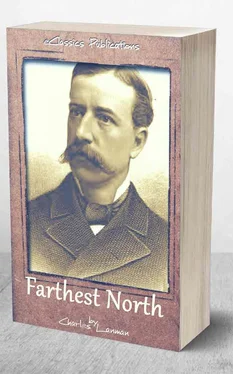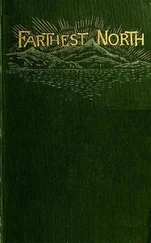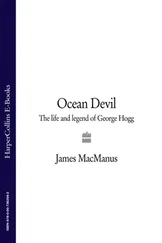Charles Lanman - Farthest North - or, the Life and Explorations of Lieutenant James Booth Lockwood, of the Greely Arctic Expedition
Здесь есть возможность читать онлайн «Charles Lanman - Farthest North - or, the Life and Explorations of Lieutenant James Booth Lockwood, of the Greely Arctic Expedition» — ознакомительный отрывок электронной книги совершенно бесплатно, а после прочтения отрывка купить полную версию. В некоторых случаях можно слушать аудио, скачать через торрент в формате fb2 и присутствует краткое содержание. Жанр: unrecognised, на английском языке. Описание произведения, (предисловие) а так же отзывы посетителей доступны на портале библиотеки ЛибКат.
- Название:Farthest North: or, the Life and Explorations of Lieutenant James Booth Lockwood, of the Greely Arctic Expedition
- Автор:
- Жанр:
- Год:неизвестен
- ISBN:нет данных
- Рейтинг книги:5 / 5. Голосов: 1
-
Избранное:Добавить в избранное
- Отзывы:
-
Ваша оценка:
- 100
- 1
- 2
- 3
- 4
- 5
Farthest North: or, the Life and Explorations of Lieutenant James Booth Lockwood, of the Greely Arctic Expedition: краткое содержание, описание и аннотация
Предлагаем к чтению аннотацию, описание, краткое содержание или предисловие (зависит от того, что написал сам автор книги «Farthest North: or, the Life and Explorations of Lieutenant James Booth Lockwood, of the Greely Arctic Expedition»). Если вы не нашли необходимую информацию о книге — напишите в комментариях, мы постараемся отыскать её.
"Farthest North" by Charles Lanman
Description:
In the 1885 written «Farthest North», Charles Lanman (1819-1895) tells the life story of Lieutenant, and American arctic explorer, James Booth Lockwood, and his deadly participation in the Lady Franklin Bay Expedition, also referred to as the Greely Arctic Expedition.
Farthest North: or, the Life and Explorations of Lieutenant James Booth Lockwood, of the Greely Arctic Expedition — читать онлайн ознакомительный отрывок
Ниже представлен текст книги, разбитый по страницам. Система сохранения места последней прочитанной страницы, позволяет с удобством читать онлайн бесплатно книгу «Farthest North: or, the Life and Explorations of Lieutenant James Booth Lockwood, of the Greely Arctic Expedition», без необходимости каждый раз заново искать на чём Вы остановились. Поставьте закладку, и сможете в любой момент перейти на страницу, на которой закончили чтение.
Интервал:
Закладка:
The few letters that Lieutenant Lockwood wrote home from New York contained very graphic pictures of what he there observed. His reception at the recruiting-station was most cordial, one of the first things done there by the recruiting-officers, to his surprise, being to bring forth a demijohn of whisky; but from this hospitality he begged to be excused, only one or two other young men following his example.
After a service of several weeks at the recruiting-station in New York, he conducted recruits to the Territory of Arizona by the way of Panama. The party left New York in November, 1873, and, on reaching San Francisco, went by steamer to Fort Yuma, near the mouth of the Colorado River, and thence marched over the rugged and dusty plains of Arizona to McDowell Post, a distance of more than one hundred and fifty miles in the interior.
From the few letters that he wrote respecting his trip from New York to San Francisco, we gather the following items:
“Aspinwall is a dirty, sandy town, of no architectural pretensions. I cannot better describe it than by asking you to imagine Lockwoodville with a lot of palm- and cocoanut-trees growing in the vacant lots, plenty of the sand and filth aforesaid, all the darkies of Annapolis sauntering around, plenty of children and many dogs, pigs, etc. However, I must do Aspinwall justice—it has a neat little church, a marble monument erected to some of its chief benefactors, and, what I should call, a remarkably fine statue of Columbus, in bronze. It has an enormous trade passing through it, from one ocean to the other, and is really a place of great importance to the mercantile world.”
“We reached Panama between four and five in the afternoon, after a very interesting ride across the country, and were immediately embarked for the Constitution—which lay two miles from shore—so that I had no opportunity of seeing Panama, except from the water. The ship left during the evening, and ever since has been ‘plowing the angry main’ toward San Francisco, excepting when stopping at some of the towns along the coast. We have seen several of these, and they are all of one type, that of Aspinwall, though on a much smaller scale. Some that I saw had not half a dozen wooden houses, but consisted merely of reed-huts covered with straw. One of these—Mazatlan—claims to have twenty thousand inhabitants, but does not appear to have more than one tenth of that number. All the tropical fruits were abundant at these places, and could be purchased for a trifle. The Constitution is a side-wheeler of four thousand tons, and has little motion, and, while sea-sickers are abundant, I am not one of them. I have gained ten pounds, and now weigh one hundred and sixty-one.”
Lockwood’s stay in San Francisco was too brief to afford him much opportunity for observation, but here is what he said of the Chinese: “I visited Chinatown this evening, and saw the Celestials in all their glory. I saw many strange and amusing sights in their stores and shops and along their streets, as they are very slow in adopting civilized customs. I send along with this some Chinese pictures which I purchased. I am very much pleased with San Francisco, and shall leave it with many regrets. A walk through the Chinese quarter is like a visit to some Chinese city on the other side of the Pacific.”
The few events of his trip along the coast to Yuma were to this effect: Soon after leaving the Golden Gate, he experienced a storm that was far from pacific in its character, far worse than any he had witnessed since leaving New York; he visited Magdalena Bay, which impressed him as a barren, miserable place, chiefly noted for its want of houses, and yet of some importance as the shipping port of a dye-wood found in that region; he also stopped at Carmen Island, where large quantities of salt were found in the dry bed of a lake, and at Cape St. Lucas, but brought away no favorable impressions from any of these remote places. With Yuma City he was better pleased, describing its houses as small, one-story affairs, built of adobe, more Mexican than American in character, and its streets as far more dusty than those of Washington City; and the mountains surrounding the city as very imposing. The Colorado reminded him of the Red River—the channel winding and running between great mud-flats and islands, all constantly changing, and abounding in many kinds of water-fowl. He was interested in the Indian inhabitants, whom he pitied for their poverty and degradation; occasionally seeing a number of squaws reclining like quadrupeds on the mud-flats or in front of their tiny oval huts.
The sojourn of Lieutenant Lockwood in Arizona lasted into the summer of 1874, and from the letters which he wrote home from Post McDowell may be gathered some interesting particulars, illustrating his habits of close observation in regard to men and events.
His journey from Fort Yuma to Camp McDowell was full of interest and was greatly enjoyed. He had for companions two brother officers and three ladies; traveled by ambulance, making marches of only about fifteen miles; camped out every night, Lockwood himself sleeping on the ground outside. As the country was very desolate and barren, they traveled generally along the valley of the Gila, but their last march was over desert land forty-five miles wide. They saw many relics along the route, mounds, ruins, and immense ditches for irrigation. One immense pile of rocks, called the Painted Rocks, was entirely covered with pictures of lizards, Indians, beasts, and birds—supposed to represent a great battle in which the Apaches conquered the Maricopas. There were also along the road graves of men murdered by the Indians. One grave, near Gila Bend, was of a man named Lumley, a station-keeper, murdered by two Mexicans—his successor exhibited a knife, used by one of the murderers, which had been found, and he pointed out the spot where Judge Lynch had disposed of the only criminal that happened to be captured. While the travelers did not spend any money at hotels, they were obliged to pay from twenty to thirty dollars for being ferried across the Gila and Salt Rivers at different points.
In one of his letters, written to his sister after the rainy season, and soon after his arrival at Camp McDowell, young Lockwood says: “I wish you could see the pretty flowers around here; they are principally yellow and red, and each kind grows by itself. They grow so close together that the ground is covered as with a carpet. To the west of this post there is a wide plain covered with these flowers. There is also a species of cactus called the Suwarrow, which grows fifteen or twenty feet high—a sort of tree without branches, but covered with thorns; the outside of this tree is of a green color and nearly as soft as young asparagus, but inside it has a frame of wood. These are all over the plain, in fact all over Arizona. I often walk out here after dinner with a large dog that belongs to one of the officers, and start up the rabbits—great big Jack-rabbits, as they are called—as large as a small dog. They can run very fast, faster than any dog except a hound. Among other curiosities about here are rattlesnakes and lizards—the lizards as common as flies; also crows as big as hens and almost as tame. The post is entirely surrounded by mountains.” By way of contrast to this pleasing prospect, in another letter he gives the particulars of the murder of two men by the Indians within twelve miles of the garrison, their bodies having been fearfully mutilated. “I am still in the land of the finite and material,” he writes, “and the Apaches have not yet disturbed the arrangement of my back hair; in short, I am alive and kicking.”
On the 14th of May, Lockwood writes that “there has been nothing new at the post except the arrival of Lieutenant Schuyler, Fifth Cavalry. He has been out on a scout for several months past, dropping in at various posts now and then. He reports that he came upon the Apaches southeast of here, killed twelve and took fourteen prisoners. He is accompanied by Dr. Corbasier and a party of thirty-one soldiers and eighty-one Indian scouts. These scouts are composed of Apache-Mojave, Tonto-Apaches, and other tribes, closely allied to the Apaches proper. It seems strange that they are thus willing to join the enemy in exterminating their brethren; but such is their nature. They are hardly superior to the beasts, except in shape, and even there the line of demarkation is not very distinct. The Pimos, to the number of one hundred or more, were here about a week ago, on their way to punish the Apaches for stealing some stock from them. When they returned, they reported the killing of quite a number of their foes—some sixteen or more—and taking many prisoners. Schuyler’s party confirm the report; they came across the camp of the Apaches, and the doctor said he counted a large number of slain. The Pimos surprised the Apaches when asleep and almost exterminated them. They were armed with war-clubs, and of course mangled their bodies horribly. When found their heads were all beaten in, and their bodies stuck full of arrows and partially burned. The doctor says it was the most sickening sight he ever beheld. The Apache bands, off their reservations, are fast becoming exterminated, over a thousand having been killed during the last winter. General Crook will not allow them to return to their reservations unless they bring the heads of several of the ringleaders in the late outbreak.”
Читать дальшеИнтервал:
Закладка:
Похожие книги на «Farthest North: or, the Life and Explorations of Lieutenant James Booth Lockwood, of the Greely Arctic Expedition»
Представляем Вашему вниманию похожие книги на «Farthest North: or, the Life and Explorations of Lieutenant James Booth Lockwood, of the Greely Arctic Expedition» списком для выбора. Мы отобрали схожую по названию и смыслу литературу в надежде предоставить читателям больше вариантов отыскать новые, интересные, ещё непрочитанные произведения.
Обсуждение, отзывы о книге «Farthest North: or, the Life and Explorations of Lieutenant James Booth Lockwood, of the Greely Arctic Expedition» и просто собственные мнения читателей. Оставьте ваши комментарии, напишите, что Вы думаете о произведении, его смысле или главных героях. Укажите что конкретно понравилось, а что нет, и почему Вы так считаете.












